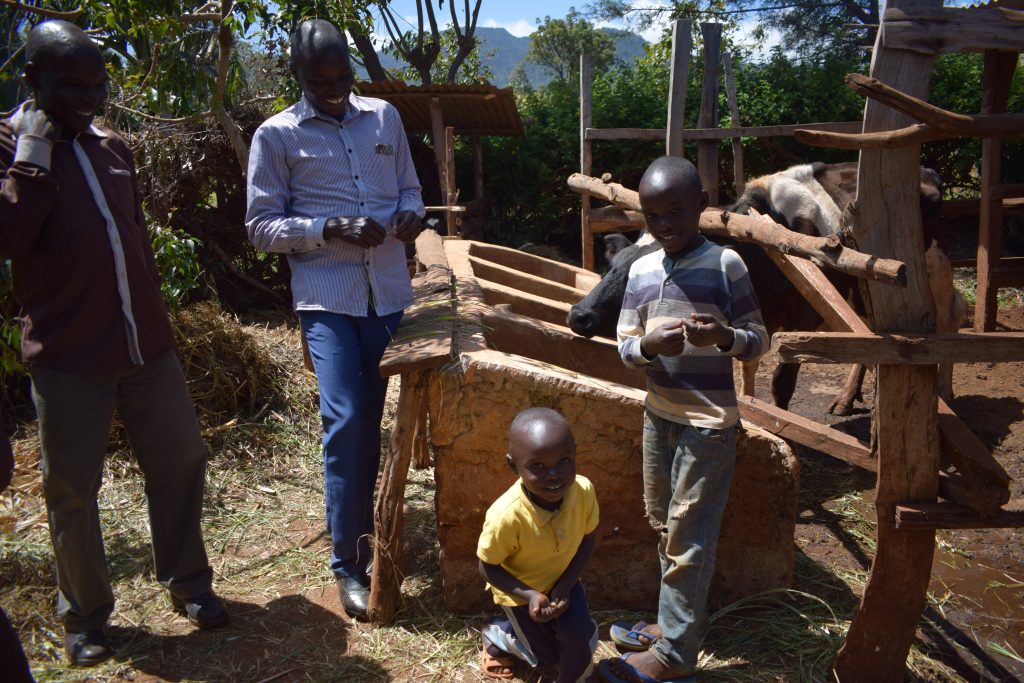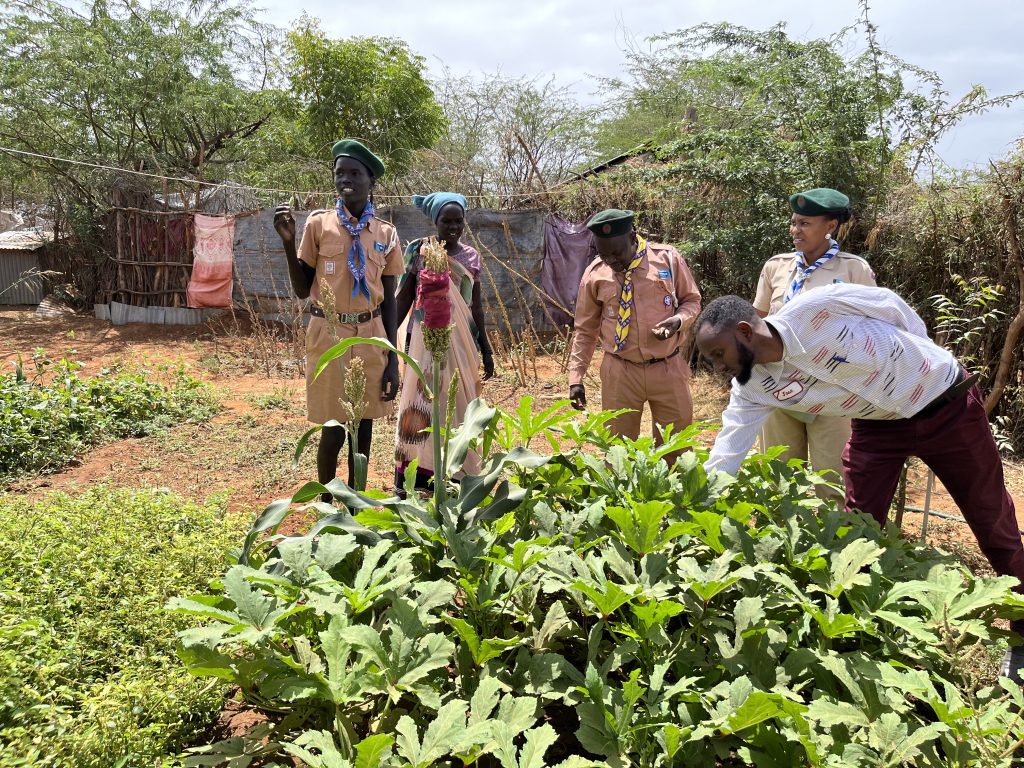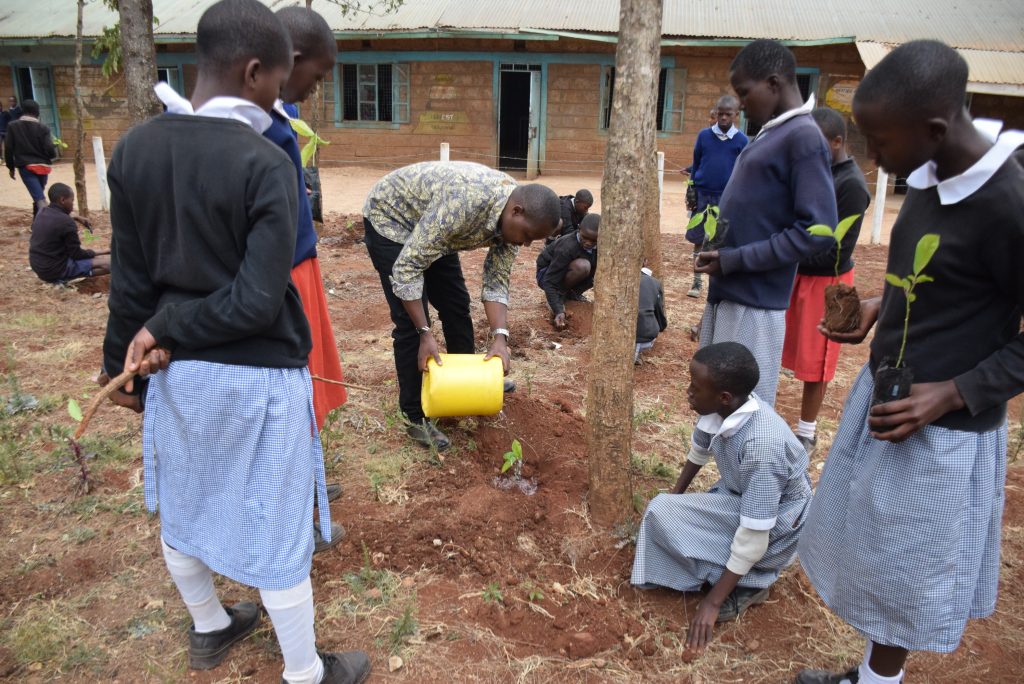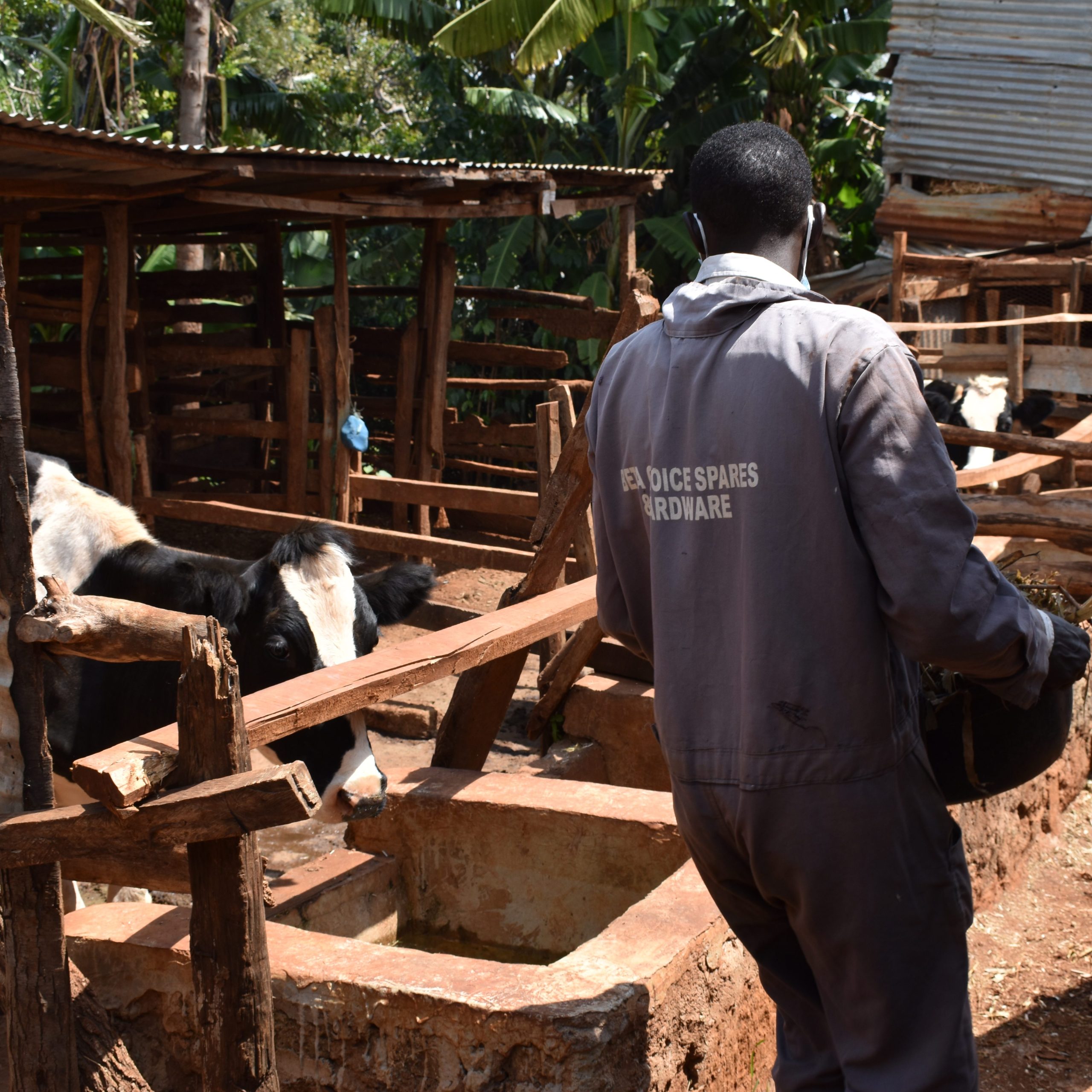Kenya is one of the countries in Sub-Saharan Africa currently experiencing one of the most alarming food crises in decades. This is according to the International Federation of Red Cross and Red Crescent Societies IFRC.
Severe drought, due to the failure of four consecutive rainy seasons, means 3.5 million people in the country are in need of food assistance according to the World Food Program.
But drought isn't the only problem: political instability, high inflation, climate-related disasters, conflicts and displacement are just a handful of the other local and global factors at play that are putting people's lives across the country at serious risk.
In this context AVSI implements its projects to offer opportunities to build stability and hope to the communities starting from concrete needs and training people to become independent.
The impact of MAZIWA Project
Today, for example, 1,800 farmers are able to survive thanks to the skills gained by participating in the Maziwa project, a three-year (2018 – 2021) initiative funded by the Italian Agency for Development Cooperation.
The successful completion of the 5 dairy cooperatives in Meru County ensured that farmers have a reliable market for their milk. Dairy cooperatives remain as the main link to stability by offering sustainable opportunities to the farmers that include:
- free trainings
- markets for already produced milk
- financial inclusion through access to loans and dairy feeds
- quality equipment that allows for milk loss reduction.

Maziwa project: a quantified data analysis
From the AVSI Maziwa project internal evaluation report, more than 3,000 cooperative farmers continue to benefit from the educative journey with Maziwa Project that has helped improve the daily milk production per cow from 5 liters to around 9.3 liters. Farmers' income increased by 78%, while dairy cooperatives' income increased by 54%. Soured milk has been reduced by 83% at the cooperative level and 52% at the individual farmer level as a result of the distribution of aluminum cans and adequate cooling tools.
Adaptation to climate smart agriculture is essential for building resilience to climate change
As one of the best actions to support climate change advocacy, the Maziwa project introduced climate-smart agriculture practices. The trainings improved pasture management, with 64% of farmers switching to climate-adaptive seeds for silage crops that require less water for optimum production and fodder preservation through silage and hay production.
Improvements in animal breeding and animal health augmented climate-smart actions, with 74% of farmers preferring artificial insemination breeding to produce climate-adaptive productive animals. A strong footprint on influencing climate change was also realized with the installation of 11 biogas systems in all the 5 cooperatives and two photovoltaic systems in Ariithi and Ngusishi cooperatives. The step was part of the campaign to introduce the farmers to the use of renewable energy sources during their day-to-day practices. 10% of the farmers reached are already practicing the use of biogas and solar systems in their homes and this represent a significant number of people with effective transferable knowledge acquired and is a link to demonstratable use of clean energy by the community.
New initiatives in the agriculture and climate change sectors
With AICS from Maziwa to Agrifood Economic Recovery project
Thanks to the lessons learned from the Maziwa Project, AVSI is now implementing the Economic Recovery project to the impact of covid-19 on Agri-Food Value chain. The Agri-Food Economic Recovery project will contribute to the improvement of the socio-economic status of the local communities by directly working with 30 dairy cooperatives and in this way reaching more than 15,000 farmers.
The cooperatives will be supported with digital tools and skills for digitization of records, empowered with skills to develop and operationalize viable business models and eventually facilitated with matching grants to build their storage and processing capacity.
The famers will be supported with subsidized recovery kits (silage maize seed, silage bags and molasses) for fodder establishment and preservation, enhancement of climate smart production, trainings on agri-business and development of agri-enterprises through provision of grants, radio-channeled agricultural extension information as well as benchmarking tours to enhance relatable skills.
Some of the expected outcomes from the initiatives of the Agri-food Recovery project are: 70% increase in Milk Production, 50% reduction in Milk post-harvest losses, 70% of the household income increase by at least 30%, 500 value chain jobs created and at least € 2.5 million generated by catalyzing production, value-adding and trade activities through the matching grants.
Other actions is AVSI in Kenya is doing on climate change advocacy
Climate change is an immediate reality to many nations around the world and for Kenya: it is a key government’s agenda with an intention to promote the use of clean energy and phase out fossil fuels for electricity by 2030. A hefty task of planting 5 billion trees by 2027 is one of these actions as highlighted from the Kenya president’s speech by the Star Magazine
AVSI contributes in different ways to this vision in its projects. Below we highlight the initiatives and how they contribute to a better environment:
- The AICS funded project "Private Sector and Innovative Energy Technologies Development in Kenya" is creating an enabling environment to strengthen the private sector linkage through the installation of renewable energy sources for research and educative purposes with an aim for a further deployment on a broader scale.
- Through its initiative to improve adoption of efficient and affordable healthy green practices, the Tuende Pamoja project (Lets go together), funded by AVAID (AVSI founding member) and FOSIT, will subsidize improved cooking stoves and allow 800 people to access them at a 20% contribution to the total cost.
- The participants of the "Circular Economy initiative" are trained on paper recycling and briquettes making, best waste management practices and on menstrual hygiene management with an aim of creating jobs from paper recycling and providing sanitary towels.
- The Arabika project, which works in the agricultural sector through coffee farming, is helping farmers adopt new climate-smart production techniques for disease control and proper composting of coffee residues, as well as modern and eco-friendly post-harvest technologies. This Climate Smart production will benefit 30,000 coffee growers. The project is funded by AICS.
- In Dadaab thanks to the PRM funds several actions have been initiated as an Education Integrated Environmental Action with Scouts. An environment conservation education program in all the primary and secondary schools in 32 refugee primary schools and 8 secondary schools and 12 host community schools has been introduced with the boys’ and girls’ scouts’ establishing and maintaining tree nurseries in all the schools. There are ongoing trainings of 560 refugee adults (scouts’ parents and guardians) in Kenya and 920 small scale farmers in the Dhobley Somalia returns as environment conservation agents using Food for Life manual. A competitive plastic garbage collection exercise by scouts in the refugee and host community scouts was initiated to train on environmental conservation.

- The Distance Support program will enable the planting of more than 3,000 fruit trees as part of its agroforestry campaign, the distribution of 300 improved cooking stoves to families, and the provision of solar lanterns to 1000 households. The project is supported by Italian and Swiss private donors, Esharelife foundation

- AVSI is installing 60,000 litres of water tanks at Little Prince school, a school built by AVSI in Kibera, and is providing 100 litre water tanks to 200 families as part of the Maji ya Masomo project (Water for Education). Families will be educated on best practices for water harvesting in order to make better use of this precious commodity, which is now being impacted by a variety of environmental issues. This initiative is funded by FOSIT in collaboration with AVAID, one of the founding members of AVSI.




